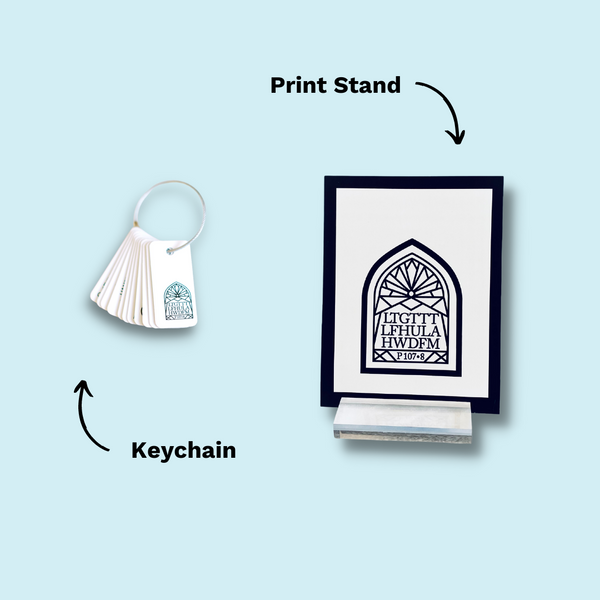“For where your treasure is, there your heart will be also.” — Matthew 6:21
Growing up in the divided homes of two single parents meant often hearing, “No, we can’t afford that.” As a teenager I hated those words. I wanted to have what my friends had, to go where they went, to enjoy spontaneous spending like they did.
Now, as a parent myself, I marvel at how my mom especially handled finances and how, as a public school teacher, she made ends meet on her own. In reality, she worked tirelessly and I lacked nothing. But as an immature girl, wrapped up in materialist motives, I wanted more. My goal as I left for college was to get a degree that would make me wealthy. I set out to never say, “We can’t afford that” to my own children.
Thankfully my story does not end there. College was a reckoning. The Lord, with his deep mercy and great love (Ephesians 2:4), relentlessly pursued me, refusing to let me be satisfied with less than a vibrant relationship with him. I had one foot chasing the goods of this world, and one foot trying to follow Jesus. As my divided life was exposed one evening at Bible study, a Christian friend who was fed up with my duplicity exclaimed, “Jen, you cannot serve both God and money” (Matthew 6:24).
It was cold water thrown on a complacent face.
My friend—not to mention my God—could see right through me. Jesus says, “For where your treasure is, there your heart will be also” (Matthew 6:21). My heart was flirting with the temptation to forego the treasures of heaven for the temporary gratification of material gain.
Is Wealth the Problem?
I can see my college self (and let me be honest, at times my current self) in the story of the rich young ruler. Picture him with me. He approaches Jesus and asks, “Teacher, what good thing must I do to get eternal life?” (Matthew 19:16). Jesus perceives his divided heart and answers, “If you want to be perfect, go, sell your possessions and give to the poor, and you will have treasure in heaven. Then come, follow me” (v. 21). The outcome? “When the young man heard this, he went away sad, because he had great wealth” (v. 22). Jesus turns to his disciples and says, “It is easier for a camel to go through the eye of a needle than for someone who is rich to enter the kingdom of God” (v. 24).
The issue wasn’t the man’s wealth. Jesus’s ministry was supported by the wealth of his followers. Mary Magdalene, Joanna, and Susanna are just three women mentioned in the Bible who supported Jesus “out of their own means” (Luke 8:2-3). There was also Joseph of Arimathea and Nicodemus, both members of the Jewish Ruling Council, who lovingly dealt with Jesus’s body after his crucifixion, donating expensive spices and a tomb (John 19:38-42). One can be wealthy and still get eternal life.
The difference between the rich young ruler and these supporters of Jesus’s life and ministry was where they spent their treasure. The young man was unwilling to part with his, while Jesus’s followers spent “their own means” on their Lord’s well-being, his ministry, and the advancement of his kingdom.
Their money served their God. They did not serve their money.
What Story Does Your Bank Statement Tell?
My husband and I had a pastor early in our marriage who often said, “If you want to know where your heart is, look at your credit card statement and your calendar.” We spend our time and our money on the things that we value. As Jesus said, “For where your treasure is, there your heart will be also” (Matthew 6:21).
Here’s what’s tricky for us Christ followers in the wealthy West: material wealth and the latest and greatest consumer goods are right at our fingertips, and most of us can afford plenty of them. Discipled by our culture, lacking the limits of poverty, and wanting to satisfy our own flesh, we spend, spend, spend. We easily value the creaturely comforts of here and now more than the soul-deep satisfaction of investing in eternity. We are the rich ones Jesus speaks of, “Truly I tell you, it is hard for someone who is rich to enter the kingdom of heaven” (Matthew 19:23).
Eternal Joy > Instant Gratification
When we lived overseas, the only way to dispose of large trash items was to drive them to a dump ourselves. My husband would visit the dump a few times a year and he would always take one of our kids with him. While there, they would walk around to see rusted out bicycles, tarnished dolls, plenty of plastic toys, and rotted out furniture. The ritual allowed him and our daughters to be reminded of where worldly goods ultimately end up. They seem nice for a while, but we all know how quickly our new things break down, go out of style, or lose our interest.
As it turns out, my husband and I don’t actually say, “We can’t afford that” to our children. Instead, we’ve been careful to plot out our monthly budget alongside our kids. From the time they are four years old we ask them to join us as we set guidelines for our spending, saving, and giving. When we come across a temporary good that’s not in line with the eternal plans we’ve made, we say something like, “Remember what we decided? That’s not how we said we’d spend our money this month.” Of course, at times, they are disappointed, and so are we. Resisting instant gratification isn’t easy.
But Jesus isn’t out to make us miserable. Far from it! He came that we might have life and have it to the full (John 10:10). As our Creator and Savior, he knows that abundant life is not found in the sum total of what we can amass here and now.
Jesus’s call to store up treasures in heaven is for our good. He wants us to have eternal joy, not fleeting happiness. Let’s not be satisfied with any less.




